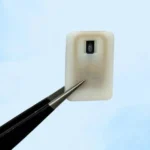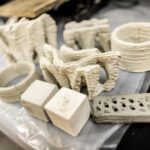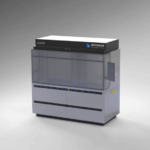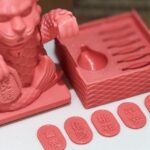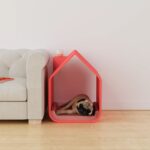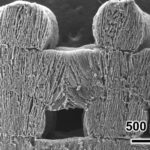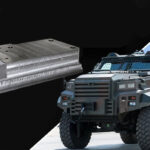Collider technologies is a startup that is making the news rounds quite a bit these days. The company previously announced its Orchid 3D printer which is now available for pre-order. Collider tech are hoping that customers will help beta test the device and improve it along the way. The Orchid uses continuous DLP technology to print a wide range of materials.
Available Materials for the Orchid
While there are many DLP machines on the market, what makes the Orchid special is how it can print metals and rubbers. The company offers 6 materials for sale on their website, all of which have different applications. This is the main draw of the printer. Since the materials are so vastly different in density, texture and flexibility the printer is applicable to many different industries and purposes.
If a user wants to create a part that is flexible and squishy, they can print with OOMOO® 25 (silicone). This material is relatively difficult to tear and makes for easily twistable prints with quite a bit of elasticity. Conversely, if users want a solid, rigid material for things likes prototyping, Smooth-Cast® 65D would be most appropriate. This is a high-resistance plastic that cures very quickly.
Another Polyurethane the company offers is FLAME OUT® POLYURETHANE, a fire retardant compound. The company vouches for it by saying: “It has much higher physical and performance properties than any other flame rated urethane available anywhere“.
Simpact® 60A urethane is another material the company offers. Simpact 60A one is a plastic elastomer with high tear strength and impact resistance. This plastic is most suitable for cell phone cases or places in need for vibration blocking or building physically resistant structures.
Finally, the company has also unveiled its stainless steel and copper resins. Both metals can make production grade prints. They are 316L STAINLESS STEEL and COPPER. They are both exemplary of how versatile the Orchid is as a device.
This video by Collider Technologies provides a quick and easy breakdown of each material (excluding the metals):




